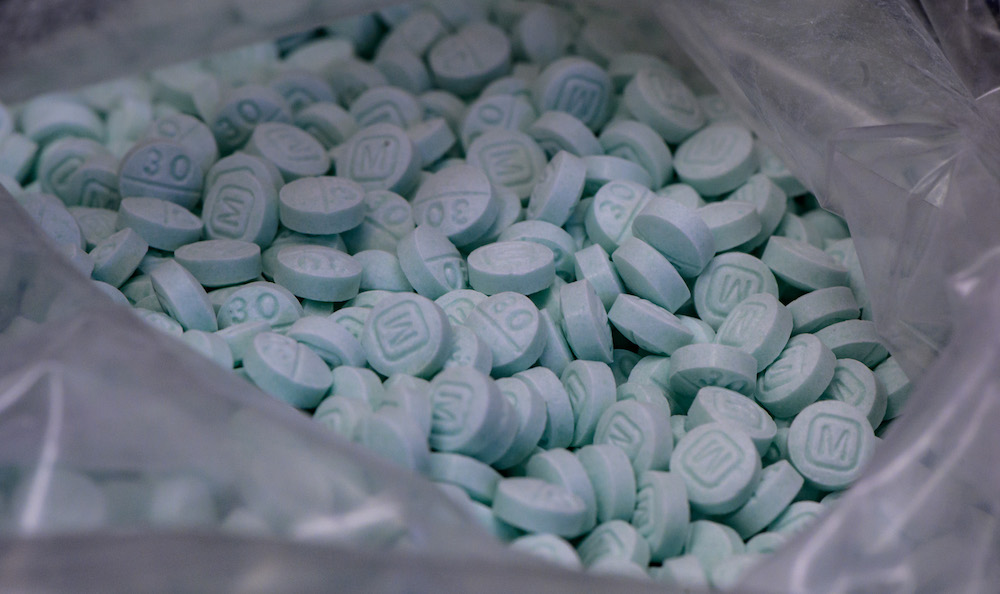
- Details
- By Levi Rickert
Opinion. Overdoses from fentanyl, opioids, and other deadly drugs such as "tranq" are leading to loss of life and a decline in the health and well-being of tribal communities. In addition, the epidemic is contributing to the spread of infectious diseases, such as HIV and hepatitis C.
The fentanyl problem in the United States is real. According to the National Institute, in 2021, some 106,000 Americans died from a drug overdose, of which 65% were caused by fentanyl.
In 2022, the Drug Enforcement Administration seized over 379 million doses of fentanyl, which is enough to kill everyone in the United States.
Our people are succumbing to fentanyl overdoses at a rate surpassing any other group in the United States, reflecting a staggering 279% surge between 2016 and 2021. New data released last month by the Centers for Disease Control and Prevention (CDC) reported that the rate of drug overdose deaths remained flat among all Americans from 2021 to 2022.
Regrettably, this was not true for Indian Country.
The report revealed that American Indian and Alaska Native (AI/AN) people saw the sharpest surge in drug overdose deaths in the time period, with a 15% increase in the age-adjusted rate of drug overdose rates. The number of deaths per 100,000 Native people rose from 56.6 to 65.2, the data shows.
Tragically, the high rates of drug overdoses impact the well-being of tribal families and communities. Throughout Indian Country, families have been torn apart, jobs lost, and rising homelessness.
The reasons for the free flow of drugs onto tribal lands are numerous, including a shortage of law enforcement on Indian reservations because there is not enough money allocated by Congress to adequately staff tribal police forces. National Congress of American Indians (NCAI) President Mark Macarro, who also serves as the chairman of the Pechanga Band of Luiseño Indians, during his State of Indian Nations address in February discussed the lack of law enforcement on tribal lands. Macarro cited the federal standard for officers is 2.4 per 1000 people. The Oglala Sioux Tribe on the Pine Ridge Indian Reservation in South Dakota has 0.6 officers per 1000 people.
“There's 56 million acres in Indian Country and given there are a handful of officers on patrol and every call for service — Missing and Murdered Indigenous Persons (MMIP) and other series of crimes, such as fentanyl and those committed by cartels — every call for service has an extended response time. It's unacceptable. Every non-Native in any community in the United States wouldn't accept what's happening in Indian Country and something needs to be done about that,” Macarro said.
Macarro called for a national public safety and justice summit and said there needs to be deep discussions about jurisdictional and law enforcement needs on our tribal lands and police brutality in our urban tribal communities.
So that fentanyl does not stand a chance of reaching tribal lands, there is a need to stop the flow into the United States from Mexico. In order for progress to be made politicians need to stop playing the blame game, particularly saying President Joe Biden has turned his head on the issue by allowing undocumented immigrants to bring it across the border.
Contrary to the false information being perpetrated by the right-wing members of Congress, the deadly drug is not being brought across the southern border of the United States by undocumented immigrants.
A study by the Cato Institute show the facts on fentanyl entering our country:
- Fentanyl smuggling is ultimately funded by U.S. consumers who pay for illicit opioids: nearly 99 percent of whom are U.S. citizens.
- In 2021, U.S. citizens were 86.3 percent of convicted fentanyl drug traffickers—ten times greater than convictions of illegal immigrants for the same offense.
- Over 90 percent of fentanyl seizures occur at legal crossing points or interior vehicle checkpoints, not on illegal migration routes, so U.S. citizens (who are subject to less scrutiny) when crossing legally are the best smugglers.
- The location of smuggling makes sense because hard drugs at ports of entry are about 97 percent less likely to be stopped than are people crossing illegally between them.
Congress needs to stop blaming Biden for the border issue that has existed for decades and pass legislation to hire more law enforcement officers to get the U.S. citizens who attempt to bring in the deadly drug.
Thayék gde nwéndëmen - We are all related.
More Stories Like This
Disrupting Poverty Through OpportunityMarmot Day (Ground Hog Day) and the (Lack of) Law
Sanctuary Cities Under Siege: When Federal Power Becomes a Weapon Against the People
Denmark's Genocidal Practices in Greenland
Cherokee Nation Stands Against Predatory Lending
Help us defend tribal sovereignty.
At Native News Online, our mission is rooted in telling the stories that strengthen sovereignty and uplift Indigenous voices — not just at year’s end, but every single day.
Because of your generosity last year, we were able to keep our reporters on the ground in tribal communities, at national gatherings and in the halls of Congress — covering the issues that matter most to Indian Country: sovereignty, culture, education, health and economic opportunity.
That support sustained us through a tough year in 2025. Now, as we look to the year ahead, we need your help right now to ensure warrior journalism remains strong — reporting that defends tribal sovereignty, amplifies Native truth, and holds power accountable.
 The stakes couldn't be higher. Your support keeps Native voices heard, Native stories told and Native sovereignty defended.
The stakes couldn't be higher. Your support keeps Native voices heard, Native stories told and Native sovereignty defended.
Stand with Warrior Journalism today.
Levi Rickert (Potawatomi), Editor & Publisher

